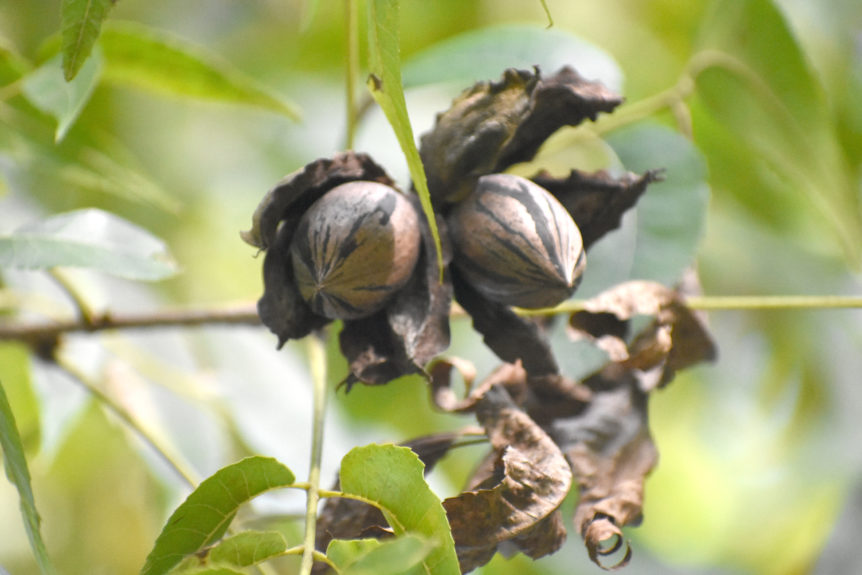
By Clint Thompson
Scab disease resistance remains the No. 1 attribute that University of Georgia (UGA) pecan breeder Patrick Conner looks for when breeding for new pecan varieties. Fungicide costs remain high. Market prices remain unpredictable, though they were devastatingly low last year for Southeast growers.
Producers need Conner, a professor of horticulture in the UGA College of Agricultural and Environmental Sciences, to breed varieties that won’t require as many applications, decreasing input costs.
“That’s our first selection and that’s definitely the reason we throw out the most things. It doesn’t have to be immune to scab, but it has to be highly resistant,” Conner said.
“If they fail the initial screen for resistance, we don’t look at it further. If we get past that, then we start getting into size, quality, productivity and traits they also have to have. There’s a bar we won’t go below in terms of scab resistance when we release.”
Scab Background

Scab is a fungal disease that infects the leaves or nuts of pecan trees. If scab impacts the nut early enough in the production season, it can cause the nut to blacken and fall from the tree. It excels on trees that have received moisture. Some growers must make at least 10 fungicide applications during an average year to manage the disease.
“That’s the reason that UGA created the breeding program. We brought in the late 70s, early 80s a bunch of new varieties that were bred in the more western regions which had good scab resistance there, but when we brought them east, our heavier rainfall and humidity, we just couldn’t control scab on them,” Conner said.
“That led to growers having to cut down orchards and replanting more traditional eastern varieties. The growers felt like they needed a breeding program based in the east and release varieties which could survive in our climatic conditions with all of the rainfall and humidity. With that in the background, I knew in the beginning that we really needed to release varieties that have pretty high levels of scab resistance to be able to be successful long term in the east.
“Avalon was good, and our newest one, 3672 has also been good. We’ve been able to grow both of those in our trials. Without sprays, they’ll show modest scab but not damaging.”
Conner did note, though, on the UGA Extension Pecan Blog that he was made aware of a young ‘Avalon’ tree in Northeast Georgia with a significant scab outbreak last May.










